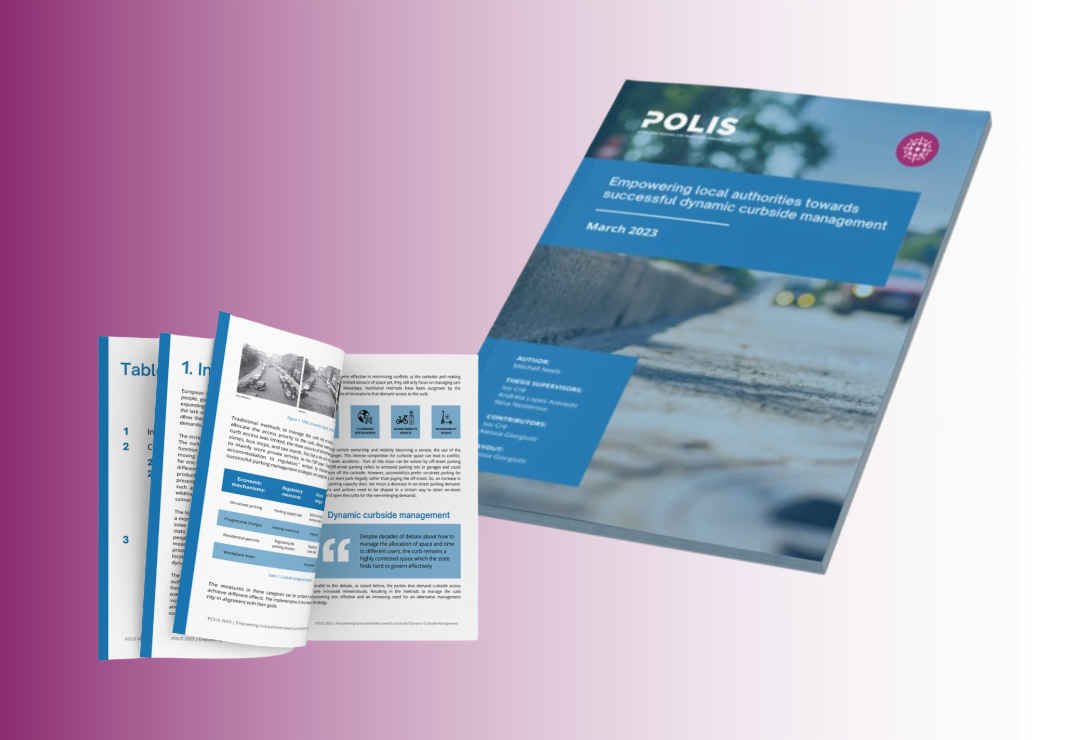Curbside management
European cities and regions are facing increasing demands for the mobility of people, goods, and services. The need to optimise the limited amount of curb space for inclusive and sustainable urbanisation has never been as urgent as it is in today’s urban scenarios.
The curb is the place where a function shift happens between the transporting function and the activities of the street, where the people, goods, and services stop moving and generate value for the city. The limited amount of curb space available for one transport system leads to conflicts regarding the allocation of space among different users and uses, which causes negative impacts on the economic productivity and livability of a city. The high demand for curbside access and the limited amount of curb space require a more dynamic use of curb space to satisfy these demands.
POLIS Working Groups
POLIS’ Parking and Access working groups discuss the importance of dynamic curbside management for local authorities and how it can be successfully implemented by focusing on local regulations, institutional arrangements, stakeholder involvement, technology and digital services, and street design.
- POLIS Working Group on Parking: POLIS members largely benefit from POLIS’ extensive experience and partnerships on parking issues. The main platform for exchanging best practices in parking management is the Working Group on Parking, which convenes several times per year in online and physical meetings.
- POLIS Working Group on Access: Through the Access Working Group, cities and regions cooperate to address challenges related to the accessibility of urban mobility, and the role of regulations, projects, and technologies in fostering improved access to the city for all.
Wish to understand more about the 'curb'?
Read our report on curbside management today!


